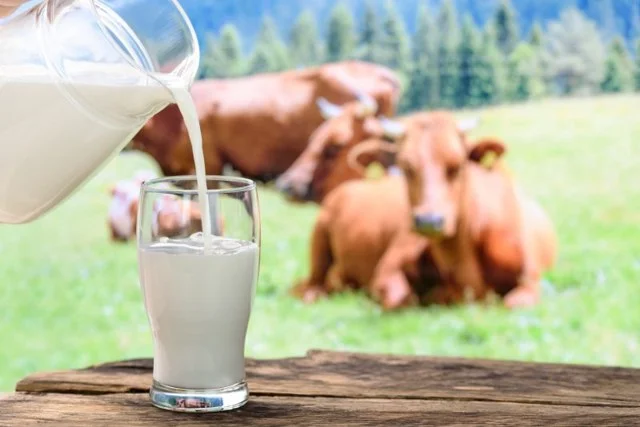Cow’s milk is one of the foods that is most present in every home. To such a point that it is considered a basic consumer product or basic basket for anyone who is going to market. With the clear exception of those who are intolerant to it, because due to their intolerance they obviously do not consider the acquisition of cow’s milk in their fridges. However, for all of us who can enjoy the consumption of this food. It is important to know what are the benefits that it brings to our body. That is why today the patron saint of how’s, the gift of questions and questions, will take the time to answer the question… Why should we drink cow’s milk? To give you an approximate consumption of this food in Spain, it is approximately ninety-two percent (92%) of households in the country consume cow’s milk. It is an extraordinary percentage, which denotes the importance of the article that was written today. Well, if there are so many of us who drink and nourish ourselves with this food, why not learn about its properties and benefits? Knowing that, let’s start with the first points to consider…

Cow’s milk as an excellent source of essential amino acids.
We will open this entry by mentioning the incredible number of amino acids that milk provides. Being specific, it offers us all the amino acids that we may need for our body, among which are: This is an important piece for the formation of hemoglobin, in addition to being able to regulate and level the degrees of energy and glucose that circulates through our blood. This has the function of ensuring the necessary absorption of calcium in our bones. In addition to playing a role similar to that of valine (which is also present in milk). That is responsible for maintaining a correct balance between nitrogen in adults. Not to mention that the lysine present in cow’s milk helps us with the production of antibodies and the generation of collagen. Which constitute the cognitive tissue and cartilage. This is responsible for promoting the healing of muscle tissue, in addition to the bones and of course the skin.
Contains healthy fatty acids (Monounsaturated and polyunsaturated omega-3).
For a long time, cow’s milk has been branded as a non-beneficial food due to its high content of saturated fatty acids. However, thanks to more recent studies, it has been found that it is not as detrimental to cardiovascular health as believed. Just as it does not harm the appearance or development of chronic diseases such as diabetes or metabolic syndrome. It is even said that it has a protective effect. Omega-3 Polyunsaturated Acids. Milk offers a great supply of omega-3 fatty acids. Which have been proven to be beneficial for cardiovascular health, mainly due to the effect of lowering triglycerides, the processes that are involved in the process of atherosclerosis and blood pressure. Monounsaturated fatty acids. Of all the fatty acids that cow’s milk provides. We have that a third of it is composed of oleic acid. The intake of monounsaturated fatty acids is closely linked to the reduction of LDL cholesterol. Also known as bad cholesterol and of course the famous triglycerides. Not to mention that it offers an increase in HFL cholesterol (also called bad cholesterol).
Rich in vitamins (A, B and D).
Of course, not everything is fatty acids, milk also provides vitamins such as A, those present in the B complex and supplements the lack of vitamin D. Vitamin A. This vitamin is particularly good for the growth and development of young people. As well as being essential for ocular (eye) health and strengthens immunity to certain diseases. Vitamins belonging to complex B. Cow’s milk offers between fifteen (15) to ten (10) percent of the recommended intake for our body of vitamins belonging to complex B. Which participate in metabolic routes, as well as the synthesis of hormones. Not to mention the energy contribution it gives us. Of all the vitamins, the ones that stand out the most are B12 and riboflamin. Vitamin D. Cow’s milk is an excellent food to turn to if you have low levels or deficiencies of vitamin D. This vitamin provides considerable physiological benefit, not only to the bones, but also to an immune level. So, consuming it can be a good way to knock down and replenish those deficiencies.
